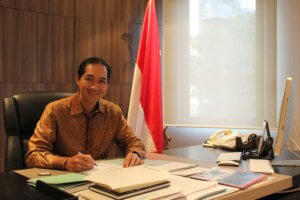Spirit of the SAMURAI in Japan: Through the Blue-eyed Karate Student
CONTENTS
Japan is home to many world-famous martial arts. Sumo, Karate, Judo, Kendo, Aikido ... and the Ninjas have a martial art called Ninpo, which is necessary for assassins. The common denominator of all these is the relationship between master and student. This way of doing things and thinking can be found in many Japanese companies. This is the relationship between senior and junior, or boss and subordinate. Foreigners who work in Japanese companies can learn a lot from the master-disciple relationship that has been found in the ancient Japanese martial arts. In this article, you can see how foreigners have lived in Japan through karate.
Get over your difficulties, overcome the fears you have today and make yourself better than you were yesterday. Reflect on yourself, thinking how you look now, compared with yesterday. Under the right self-control, toughening of the mind and body will inevitably transform you into a better person. Fighting is not the aim in your life. Learn about your true self, with an unfettered mind.
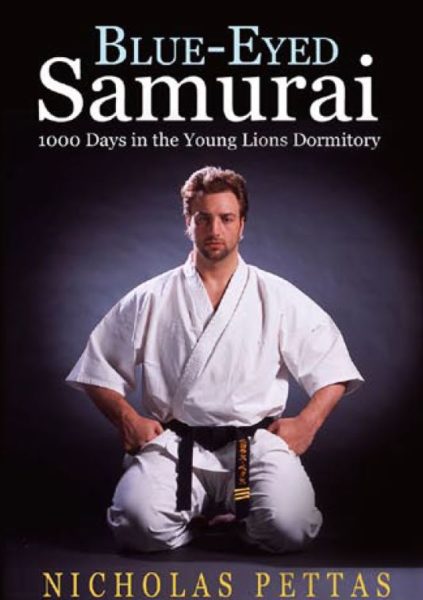
The Last Blue-eyed Karate Kid Was Born
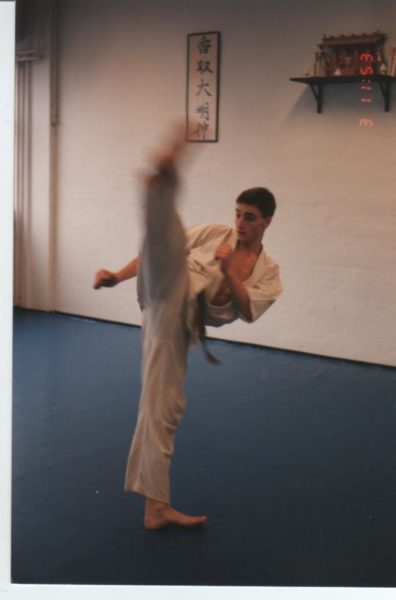
In 1991, a skinny 18-year-old ‘karate kid’ from Denmark found his future in the islands of Japan. Arriving in the country with a one-way ticket, he was determined to learn karate. With enthusiasm and passion, he came knocking on the door of the Kyokushin karate dojo (school), famous for its extremely tough, perhaps even the toughest, training regimen, one so demanding so that even Japanese deshi (apprentices), frequently gave up and ran away. He was going to learn karate for three years as an uchi-deshi, a live-in apprentice, with the famous master (since deceased) Masutatsu Oyama.
Oyama had said to him, “You will live and practice karate along with Japanese deshi as they do.” Pettas did not yet understand Japanese well, so he could only say “yes.” To become the best “karate kid” in the shortest time, he decided to “go native,” learning the Japanese language as quickly as possible, eating any Japanese food, even dishes he did not care for at all in the beginning, and absorb as much Japanese culture as possible. He also thought the best way was to be treated no different from Japanese, and that the most important thing would be to respect Japan and Japanese culture. “I would probably not have agreed to become a live-in apprentice at the strictest Kyokushin karate school if I have had access to the Internet (which was still in its infancy at that time) and been able to search out what they really did there,” Pettas reflects. “On the contrary, it was better for me not to have known about it. Fortunately a live-in apprentice can stay at the dorm and eat for free, which was my main factor in deciding. Nevertheless the ultimate happiness for me was to learn karate under master Oyama, and I remain his ardent admirer.”
“I Wanted to Be Strong”
“I really wanted to be strong at the age of 14,” Pettas said, explaining his motives. Why? While on his way home one day, he was assaulted by an unknown boy on the street - the first fight in his life.
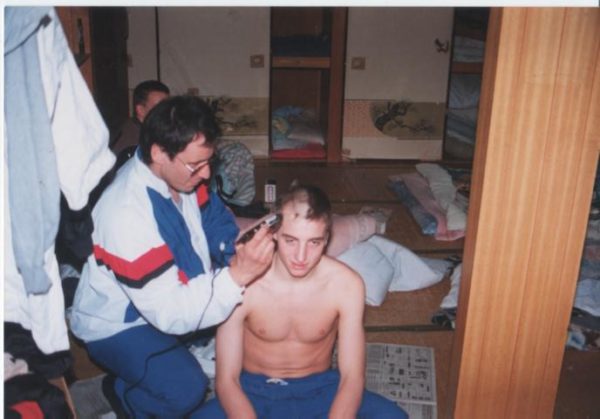
“I could not do anything against him,” Pettas continues. “The only thing I could do was to run from him, and I did not like such a feeling. Then karate popped into my mind. I did not know why I thought about karate at that time, but later I realized it came from my having seen the popular Hollywood movie, The Karate Kid.”
People tend to be particularly anxious when they attempt something new. Many athletes feel tension before a big match. But Pettas learned something important as a karate fighter in the Oyama school, saying, “Karate fighters are tense before the match. This is good! Tension means you are totally ready to fight. Now you are trying to give a better performance than usual, much faster, much powerful. Some fighters say they can not eat breakfast due to their anxiety before the competition. I say no, no --- this is wrong. It is just simply a negative way of thinking. Think like this. ‘I am now ready to fight without breakfast. I do not need it. I am fully ready only for the fight. Ready to roll! So be glad for it!’
“I was determined to finish the 1,000-day training course, the uchi-deshi program, because no foreign deshi had ever finished it. I decided I wanted to be the first foreigner to complete it.”
Tanren and Keiko for Becoming a Stronger Person
Tanren means to forge, to put a lot of effort into making something successful or strong so that it will last. It comes from shaping metal by heating it in a fire and beating it with a hammer. There is another word in Japanese, keiko, meaning practice and training, or the way of learning something by repeating kata, composed of standardized moves or forms that are inherited from ancient times. Kei means to think, ko means ancient, or old. So keiko expresses the learning of ancient things or things handed down from generation to generation, or thinking about how to learn.
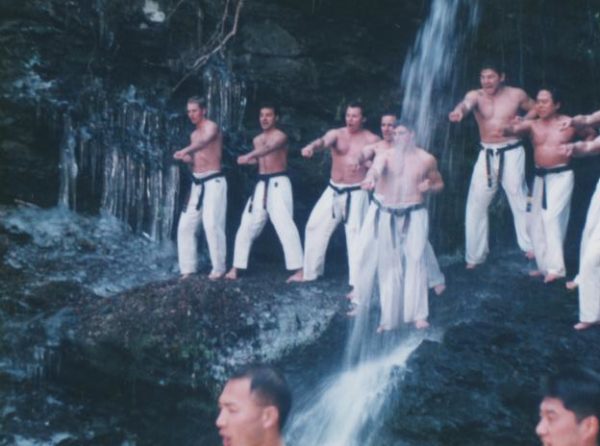
In the world of do (道), meaning a way or road, the concept of “shin-gi-tai” is a very important factor to improve oneself; gi, real techniques and skills are understood through the improvement of shin, spirit, with strong tai, body. It takes longer to bring up spirit in a higher position than to build up a body and to improve skills for mastering martial arts. It is a very profound word striving for the importance of balance of self-discovery and strong body and improved skills, for us to harmonize the three things within “you.” People sometimes think they need only strong physical body or power and skills to win games. So then tanren and keiko are the things that give a practitioner only the strength to fight. They are the fundamental factors to improve themselves. However, more importantly, spirit and mind, the mental factors, affect the entire body and the outcome of matches. Psychological pressure and doubt create negative tension.
What Is the True Yasashisa spirit of Japanese?
“Overseas,” asserts Pettas, “there is no way of thinking that corresponds to ‘gentility with strictness,’ which is what I learned from the master Oyama and through karate practice. In a practice session, if a competitor doesn’t fight someone with all his power, his opponent may be moved to think, ‘I may be stronger than him,’ which is the wrong idea. What would you think if this person got badly beaten in a real fight? That is why it is a true act of kindness to be strict with other karate fighters. That is a valuable lesson which I have learned. “Only from the fighters’ point of view, if you train with your training partners, and you are stronger than your partners, then you don’t have a desire to hurt your partners and you won’t beat them up today. But perhaps tomorrow someone else will beat them up. So if really care about this partner, you beat him up ‘today,’ He may not understand why you did it today, but maybe he will tomorrow.”
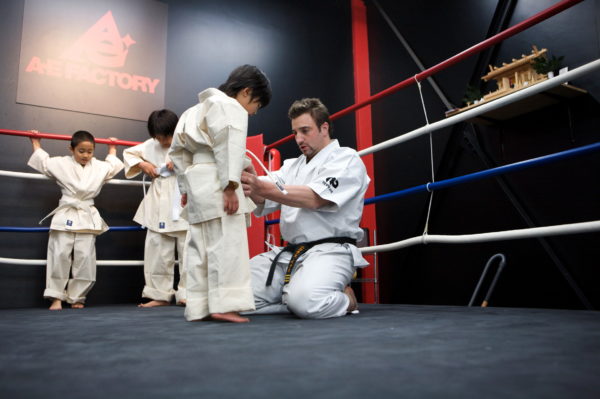
Things Japanese People Taught Me
“In my understanding, Japanese people like the practice of a ‘do’ very much. These practices would include judo, kendo(a martial art of sword-fighting), aikido(a martial art like judo, but is performed by redirecting partners’ forces with yours), iaidodo(a martial art with smooth and controlled movements of drawing katana, a sword), kado( the way of arranging flowers), sado(the way of tea ceremony), even keieido(the way of management). Previously I hosted a TV program, ‘Samurai Spirit,’ broadcast in over 130 countries, and through the program, I found how Japanese people, especially in the martial arts, hold this ‘do’ in high esteem. Do is a kind of path by which to master something, both mentally and physically. Japanese people seem to learn things deeply and systematize their thoughts. I feel, and I think I am not wrong, that Japanese people stand still and reflect on themselves, and like to practice or train themselves. In other words, they like self-realization and toughening of the mind and body to improve themselves.”
Pettas also talked about the other thing he leaned through the TV program. “I have come to understand how the samurai (warrior) spirit relates to the Japanese sense of diligence,” Pettas continues. “This sounded mysterious to me when I first arrived in Japan. In Denmark, I just had a longing for ‘mighty karate,’ and I thought there were still real samurai and ninja running around Japan. My master, Oyama, once said to me, ‘Samurai are always ready to use their katana (sword), so they keep polishing it.’ That means you must always train and improve yourself in case of emergencies.”
He also told about the Kyokushin’s goal, “One goal for the Kyokushin school is world peace. But I never understood it. It was very easy to understand for a teen if the master said to me, ‘be a number one karate player.’ But his meaning of peace is that you become stronger mentally and physically when you train yourself. You realize you are now stronger and have emotional stability or peace of mind. You do not fight any more when you have such a mind. We keep peace when everyone has it and get the real strength in mind.”
The Common Important Factor in “Do”
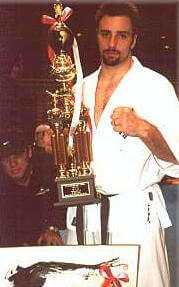
Basically all practitioners of martial arts in Japan in olden times were born to fight and to beat opponents. But Japanese people developed their martial arts to lift the practitioners up to higher levels as a human being, for character building, improvement and rules of etiquette, and respect of others. That’s the reason why winning is not as important as the results from the person’s efforts and training. In other words, the key point in learning budo (martial arts) is not a fight, but rather the practitioner’s ability to refine his spirit.
Ippon. Some people might know what ippon is. It is a kind of the scoring system in some budo like judo, giving one full highest score in the match. In Japan, kendo is a kind of samurai martial arts. To win kendo tournaments, you have to get two ippons (in a three point match), and there aren’t yuko and wazaari used in judo which point less than ippon.
Why is there only an ippon in kendo? Because any attack is fatal in kendo if they use real swords, not using bamboo sword. So they practice seriously. They have to risk everything for an ippon. They can not get an ippon only with skill and strong body. They need a strong mind as well. In a way, to win or lose depends on your state of mind.
Furthermore, people cannot improve themselves alone, but in cooperation with others. That’s why they respect others like bowing before and at the end of the game. When we are obsessed with winning, we maybe can say it is a sport or fun. But if we think improving ourselves is more important, then it must be called “do.”
To perform cleaning tasks at the dojo is a must. The reason is very simple. A dojo is considered a sacred place where they not only practice but also polish and improve their spirit. So they clean it while harboring a sense of gratitude.
Awarding a Gold Medal for Your Future Life
For Olympic participants, is winning a gold medal the ultimate goal, with nothing else beyond that point? To this question, Pettas replied, “You will face some difficulties to overcome when you accomplish something. That is quite normal. You will be able to move forward, breaking through them all with a strong body and flexible mind. In karate, there is karate-do. The do is to be followed throughout your life. You should see your life from above, and look at things from a broad perspective. “Life is much the same as karate-do. Consider your way of life in terms of your lifespan, viewing it from above with a flexible and unfettered mind. Using the analogy of guitar strings, the strings will snap if you tighten them too much, but a guitar sounds bad if you let them become too loose. So you must always tune it each time before you play it.
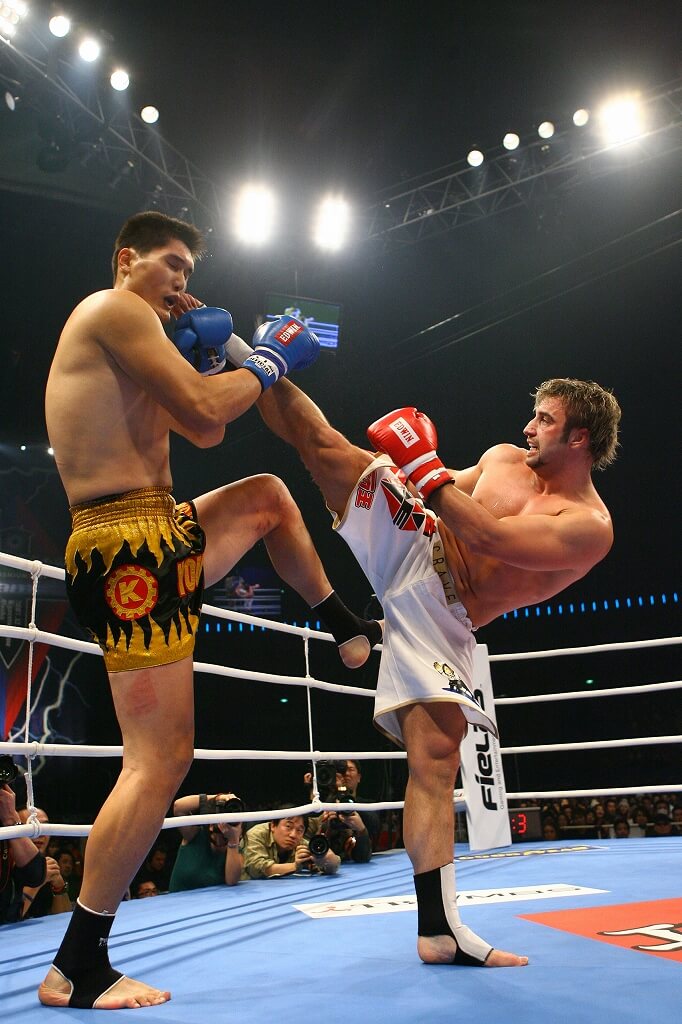
“Nobody believes me when I say karate is just my hobby. But it is true. I practiced karate seriously and made the utmost efforts to be strong, so that I was once ranked fifth at a world class level of fighting, became the best in the world twice and won the title of European heavyweight in 1995. I became the K-1 champion in my first professional bout and was ranked among the top eight kick boxers in the world. I thought my three years of training could bring myself to higher station in life, and establish a foundation for my life in the future.
“Now I have founded a company, opening the Reebok CrossFit, a health club located in the Daikanyama district of Tokyo on November 1st, 2012, where I serve as CrossFit’s official ‘Ambassador’ and partner. And also I hope to open the NishiAzabu Reebok CrossFit Heart & Beauty at the beginning of December 2012. I have confidence to oversee the business through the strong will that I forged through my tough karate training. I study management, which is very new to me, but I am confident that I can do it, because I have been through the toughest routine at the Kyokushin karate school.” CrossFit has developed a method for practice utilizing the functional movements that people naturally possess. He has confidence in running a business, because he has a strong mind and guiding philosophy which demands, simply: “Don’t be evil.” “Nothing moves forward if you think it is too difficult. I always go back to the basics, which is why I practice it now and will keep doing so in the future. I feel blessed to have self-control, peace and harmony, great strength and responsibility, and can strive toward greater achievement.
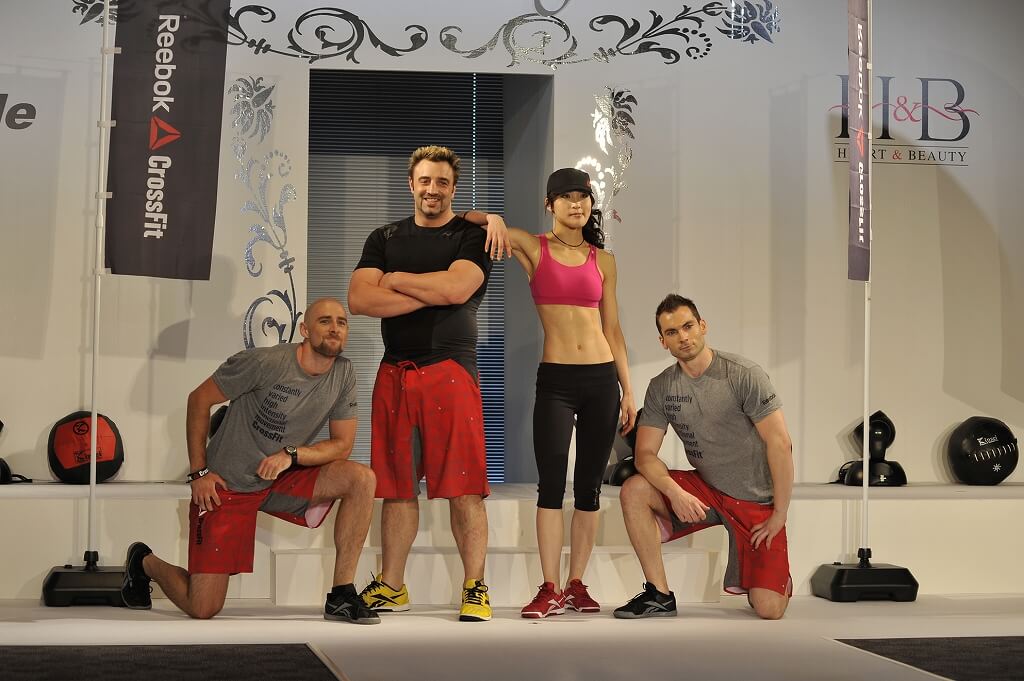
“Mr. Tsuyoshi Niibori, eighth dan (the highest rank), one of the most respect kendo master, once said to me, ‘When I reached the eighth dan in kendo, I found another big mountain to climb - well I mean to overcome.’ That is the do, I think. We keep on practicing in our lives. There is no path in front of us if we think we are strong enough now. We practice more and make more efforts to be stronger to avoid feeling fear. That means winning over oneself.” Pettas has now lived in Japan more than 20 years and thinks he has learned to understand the real meaning of budo, after such a long quest. It takes a lot of time to become a really strong person. We need a longer time than expected to improve ourselves mentally and physically.


